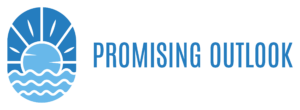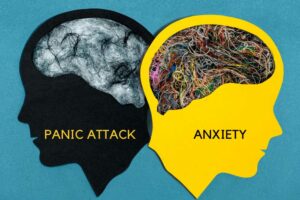Addiction can affect your life in a wide variety of ways. One of the most common problems that addiction poses for those who struggle with it is the newfound presence of psychological triggers. If addiction can be likened to a hole that you’re trying to climb out, then triggers can act as the slipperiest parts of the walls: without the proper skills and tools, they can cause you to lose your control and slide back down to where you were before. One of the first steps towards overcoming an addiction is learning more about your triggers, how they impact you, and how you can effectively deal with them as they arise to begin fostering lasting positive changes on your road to recovery.
What Is a Trigger?
In the context of addiction, “trigger” is an umbrella term that can refer to anything that influences you to use drugs or alcohol to the point that it has the power to pose a threat to your commitment to sobriety. Each person battles triggers unique to their history and present recovery path. For some, a trigger might consist of a video of your old friends having fun together, reminding you of the way you used to party with them. For others, a trigger can be a painful conversation or the receipt of unpleasant news, pulling you towards the temptation to drink the stress away.
Some people may be familiar with the reasons behind the triggers they face, while others may not understand why certain external stimuli trigger them so intensely. In either case, understanding what your triggers are and why they affect you can be a critical part of your healing process.
How Can Triggers Affect Me?
The presence of triggers in your life in recovery can affect you negatively in a myriad of ways. The most direct threat they pose is the pull towards relapse. Triggers can also affect your mental stability by making you question your resolve and motivations for sobriety, casting a shadow of doubt on your ability to improve. Triggers can get in the way of your productivity and make it harder to carry out daily tasks, go to work, and maintain honesty in your relationships. Experiencing consistent triggers can cause a wide range of negative feelings like anxiety, confusion, sadness, guilt, anger, and depression, impeding your overall progress in recovery and impacting your quality of life.
While managing your triggers is an important part of any recovery, at certain points it can become a necessity to take swift action. If you find yourself struggling with serious considerations of returning to use drugs or alcohol, or if you find that the triggers you encounter are isolating you from friends, family, and supportive peers in sobriety, you should take it as a warning sign that you must get help before you are drawn towards destructive behavior.
What Are the Most Common Triggers for Addiction?
Some of the most common triggers people experience when dealing with addiction include losing a loved one, trauma, and visceral reminders of painful past events. Being overwhelmed by the problems you’re facing throughout your life can trigger substance cravings and lead you to relapse as a means of escape. Your environment can play a significant role in the triggers you experience. Being around other people who are engaging in drug or alcohol use in a way that stirs memories of your past habits can serve to trigger you, even if you trust the person not to pressure you. It’s also not uncommon for relationship problems to act as a potent trigger. Wherever they appear, the important thing is to know yourself and accept the areas of improvement you must focus on.
How Can I Learn to Effectively Address My Triggers?
Triggers can defy your attempts to logically outmaneuver them at the moment, making it necessary to come up with viable solutions in advance. It can be helpful to spend time deeply contemplating when and why your triggers appear and how they affect you. If you’re finding it challenging to work through triggers and other problems posed by addiction on your own, don’t feel shame about reaching out for assistance. Receiving outside care in the form of therapy, especially from recovery professionals, can work wonders for improving the way you navigate your journey of recovery. Treatment centers, recovery facilities, and hospitals across the country offer specialized support for problems related to addiction, and reaching out can help you learn how to overcome your issues and achieve lasting positive changes in your recovery and your life.
Addiction can give rise to many consistent challenges like triggers that can make it harder for you to move forward in recovery, make necessary changes, and enjoy the quality of life you deserve. If you’re struggling to overcome your triggers and beat addiction, don’t think that you have to do it on your own. There is effective help available to you. Promising Outlook is a rehab facility located in Riverside, California. We offer a diverse selection of services including help with addiction, drug or alcohol abuse, detox, relapse prevention, anger management, and the development of problem-solving skills using numerous forms of powerful therapy modalities. Promising Outlook is dedicated to helping you work through your problems and change your lives for the better. We work with you on an individualized basis to equip you with the knowledge and tools needed to transform your life in the long term. To learn more about how our services can help you, reach out to us at 866.980.2869.






